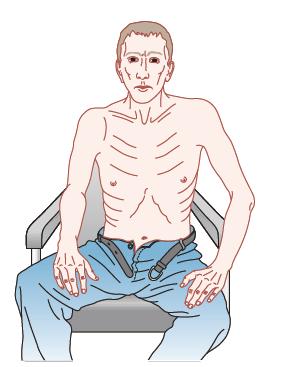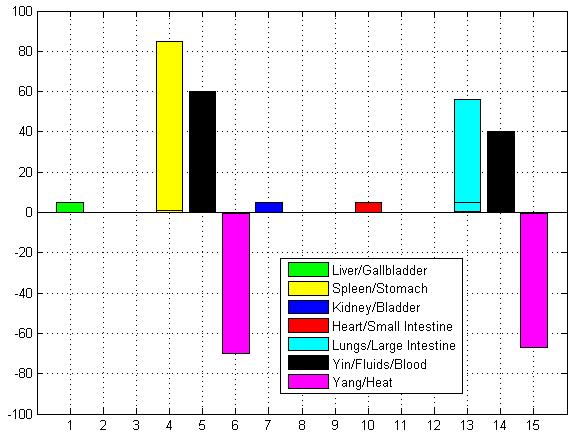How Asthma root cause can be predicted using Nadifit?
Asthma is a chronic disease that affects the lungs and the respiratory passageway of the patients. The airways inflame and fill up with mucus or phlegm. They could constrict or dilate to an uncomfortable degree.
Common symptoms of asthma could be:
- Severe wheezing on inhalation and exhalation
- Coughing that will not stop rapid breathing
- Tightness or pressure in the chest
- Retractions are tightened neck and chest muscles
- Talking is difficult
- Anxiety or panic attacks
- The face is pale and sweaty.
- Lips or fingernails that are blue
- Symptoms worsening despite medication use
Asthma according to TCM
According to TCM five element (Panchabhuta) theory and yin-yang principle there are multiple reasons for a person to suffer from asthma. Few of them are
Weak function of Spleen and Stomach: According to five element generation cycle, Spleen is a mother of lungs. The function of spleen is to transformation and transportation food, fluids to all regions. If this function is impaired, this results in stagnation of fluids and foods which converts as Phlegm and stores in Lungs. It is said in Chinese medicine that ‘the Spleen creates Phlegm and the Lungs store it’. In this case there would be profuse sputum in the Lungs. Hence, the Patient suffer from breathlessness, asthma, cough with phlegm.
Did you know?
Many people intake excessive consumption of cold and raw foods and ends up with phlegm formation in Lungs. The reason is because, cold and raw foods weakens spleen and stomach function resulting in retention of Damp-Phlegm in the Lungs.
Did you know?
Weak function of Spleen and Stomach, results in stagnation of thick phlegm. Phlegm accumulates in the body results in overweight of a person. That’s why many patients suffering from asthma are having increased weight due to damp-phlegm retention as shown Figure 1

Weak function of Lungs and Kidney due to Qi deficiency or stagnation: According to Chinese medicine, Qi is essence or Prana which is required for every organs for proper their functioning. The function of lungs is to produce Qi and pushes downwards. When lung Qi is deficient which is unable to push the Qi downwards results in Qi stagnation. This results in phlegm retention and Patient suffer from breathlessness, asthma, cough with phlegm.
Do you know?
Exterior factors like smoking (active or passive), alcohol, air pollution and interior factors like griefing, depression and sadness, makes lung Qi deficiency.
Lungs and Kidneys balance each other, as Lung-Qi descends to the Kidneys, and Kidney-Qi ascends to the Lungs. The Lungs control exhalation, Kidneys control inhalation. When the Kidneys are weak and fail to receive and hold Qi down, Qi stagnates above, resulting in Excess above, in the chest, and Deficiency below, in the abdomen, hence the shortness of breath and asthma.
Do you know?
Many patients suffering from asthma due to lung or kidney Qi deficiency for long period of time, are often thin and losing weight due to Qi deficiency as shown in figure 2.

Nadifit way of analysis
Below figure shows the graphical representation of five elements and their energy levels obtained from Nadifit. Pulse is taken for a patients suffering from chronic Gastritis and asthma.
Stomach and Lung Qi stagnation: As in Figure 3, it can be clearly interpreted as Qi stagnation or Excess yin in Spleen/stomach and Lungs/Large Intestine, indicating retention of Damp-Phlegm in upper part of the body.

Fig 3. Stomach and Lung Qi stagnation

Fig 4. Stomach and Lung Yang deficiency

